News
-
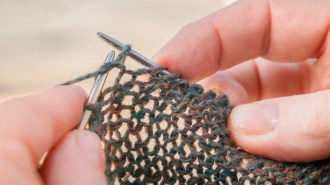 Physics
PhysicsFiber friction is the key to cozy knits
Friction between loops of yarn give knit fabrics the ability to take on a variety of shapes even when no force is applied.
-
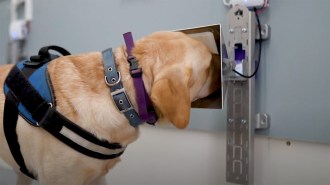 Health & Medicine
Health & MedicineDogs team up with AI to sniff out cancer
Scientists paired Labrador retrievers with an AI model in a new screening test for breast, lung, colorectal or prostate cancer.
By Meghan Rosen -
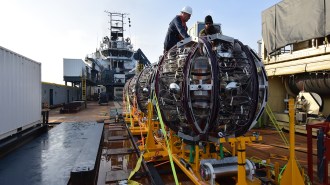 Particle Physics
Particle PhysicsScientists are building underwater neutrino telescopes in the Mediterranean
The KM3NeT telescopes, currently under construction, will catch high-energy neutrinos that could reveal secrets of the cosmos.
-
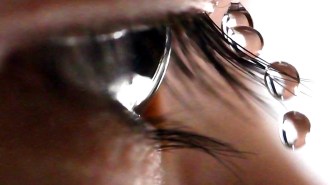 Physics
PhysicsEyelashes’ special features help fling water from the eyes
Eyelashes “micro-ratchet” structure and curved shape help wick water away from the eyes.
-
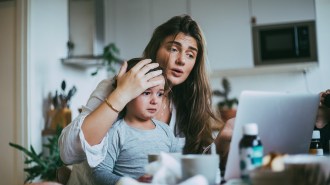 Health & Medicine
Health & MedicineTelehealth helps people get health care, but access may soon be in limbo
COVID-era telehealth laws made health care more accessible for rural patients, but telehealth might not be as easy to access next year.
By Sophie Hartley and Andrea Tamayo -
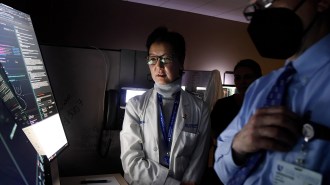 Health & Medicine
Health & MedicineStage 0 breast cancer patients may not need to rush to surgery
Women with Stage 0 breast cancer who got biannual mammograms and delayed surgery for two years fared as well as those who got immediate surgery.
-
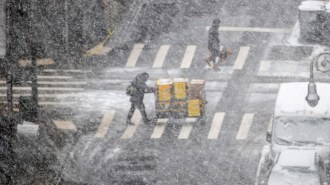 Health & Medicine
Health & MedicineDeaths related to the cold have grown since 1999 in the U.S.
From 1999 to 2022, the rate of cold-related deaths rose from about 4 per 1 million people to 9 per 1 million in the United States.
-
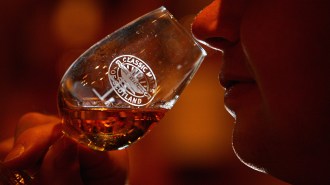 Artificial Intelligence
Artificial IntelligenceAI sniffs out whiskey flavor notes as well as the pros
A machine learning algorithm identified the top five flavor notes in 16 types of whiskey. Each matched the aggregate of what a panel of human pros said.
-
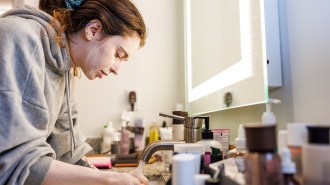 Chemistry
ChemistryA new microbead proves effective as a plastic-free skin scrubber
The nonplastic polymer cleaned up eyeliner and permanent marker and broke down into molecules related to sugar and amino acids.
By Skyler Ware -
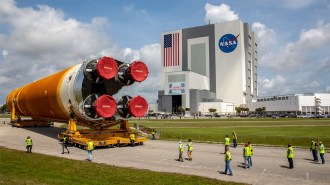 Space
SpaceWhat will space exploration look like under Trump?
A lot is unknown, but the roles of billionaires like Elon Musk and Jared Isaacman suggests a focus on human and private spaceflight.
-
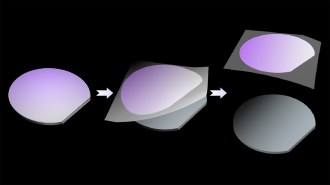 Materials Science
Materials ScienceScotch tape is key to creating thin films of diamond
The sticky stuff helped peel sheets of diamond less than a micrometer thick off silicon wafers, creating membranes useful for electronic devices.
-
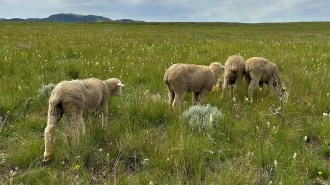 Life
LifeSheep earwax can record a dangerous diet
Sheep that eat death camas plants record the toxic meal in their earwax, a goopy health data repository that researchers are increasingly exploring.
By Jake Buehler